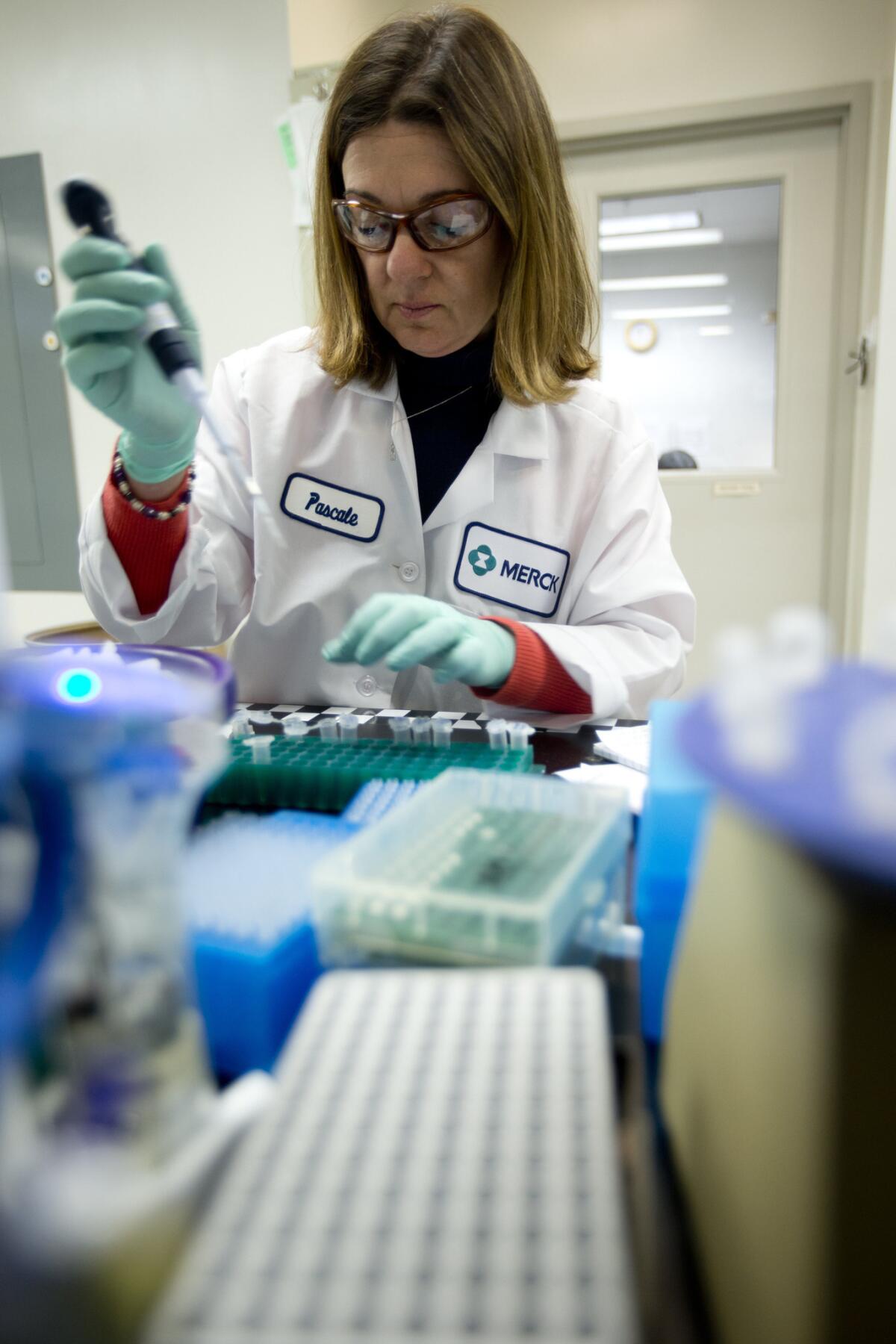Merck to buy Cubist Pharmaceuticals for $8.4 billion

- Share via
Merck & Co. agreed to buy Cubist Pharmaceuticals Inc. for $8.4 billion in cash to add products to help fight the growing threat of drug-resistant bacteria.
Merck will begin a $102-a-share tender offer for Cubist, the companies said Monday. The price is 37% above Cubist’s closing level Dec. 5. Including net debt, the deal is valued at about $9.5 billion.
Merck Chief Executive Ken Frazier said the deal will add to its line of drugs used in hospitals, one of four areas of strategic focus the drug maker announced last year.
“We will continue to look at our portfolio to bolster those areas where we can have leadership and market growth, and to divest those things that have better opportunities outside our business,” Frazier said on a conference call discussing the deal.
Cubist has said it plans to introduce four new drugs by 2020 to combat bacterial infections that are resistant to other treatments because of overuse. The rising threat of drug- resistant bugs has spurred public health authorities to urge companies to invest in new antibiotics, a field drug makers had largely abandoned to focus on more profitable therapeutic areas such as cancer or hepatitis C.
Cubist surged 36% to $100.81 at 9:43 a.m. New York time. Merck fell less than 1% to $61.35.
Frazier, 59, has said the second-biggest U.S. drug maker was trying to make small- to mid-size acquisitions in areas that would complement its stable of treatments. The company wasn’t interested in megadeals that are “very time consuming and distracting to what we’re here to do, which is invest in new medicines,” Frazier has said. Along with drugs used in hospitals, Merck is focusing on vaccines, cancer and diabetes.
Cubicin, Cubist’s top drug, was approved in 2003 by the U.S. Food and Drug Administration for serious skin infections. Its use was expanded in 2006 to include bloodstream infections. Cubicin generates more than 80% of Cubist’s sales, which the Lexington, Massachusetts-based company has forecast will reach $2 billion by 2017.
Cubist’s products may complement Merck’s own infectious disease program. One of its experimental drugs, called relebactam, received fast-track status from the FDA in September, meaning the agency will accelerate the approval process. Relebactam works by inhibiting beta-lactamase, an enzyme produced by some bacteria that can cause resistance to widely used antibiotics, including penicillin.
Relebactam also received designation as a Qualified Infectious Disease Product, which would give it five extra years of market exclusivity when approved.
Merck also has an antibody targeting Clostridium difficile in a final-stage trial. Cubist already had a drug approved that works against the bacteria, which cause infectious diarrhea.
The U.S. Centers for Disease Control and Prevention has said antibiotic resistance is killing at least 23,000 Americans a year, making it “one of our most serious health threats.”
The deal comes with a $250 million breakup fee, according to Merck.
Robert Perez, Cubist’s president and chief operating officer, is scheduled to succeed Michael Bonney as chief executive Jan. 1. Bonney has been CEO since June 2003.
More to Read
Inside the business of entertainment
The Wide Shot brings you news, analysis and insights on everything from streaming wars to production — and what it all means for the future.
You may occasionally receive promotional content from the Los Angeles Times.








